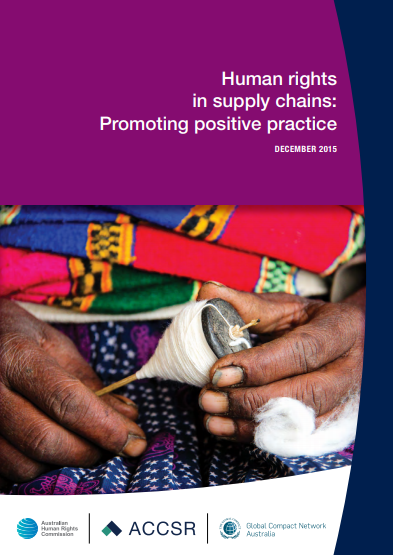Many businesses lack clear strategies and processes to monitor and manage human rights risks in their supply chains, despite recent high profile violations, new research finds.
In a landmark cooperation, the Australian Human Rights Commission, Australian Centre for Corporate Social Responsibility (ACCSR) and the Global Compact Network Australia sought to map how Australian businesses currently deal with human rights issues in their supply chains.
The report shows that Australian business is increasingly recognising its responsibility to do the right thing, but also the risk of not doing the right thing. Increased media attention around labour rights violations in Australia, particularly in reference to fresh food supply chains and significant underpayments in retail, has cemented this understanding, highlighting that this is not just an offshore issue.
This report provides a unique insight into the current drivers, practices, and challenges of Australian businesses in managing human rights in their supply chains. It provides practical guidance to help business identify and address human rights risks in their supply chains including through reference to core international standards such as the UN Global Compact and UN Guiding Principles on Business and Human Rights.

